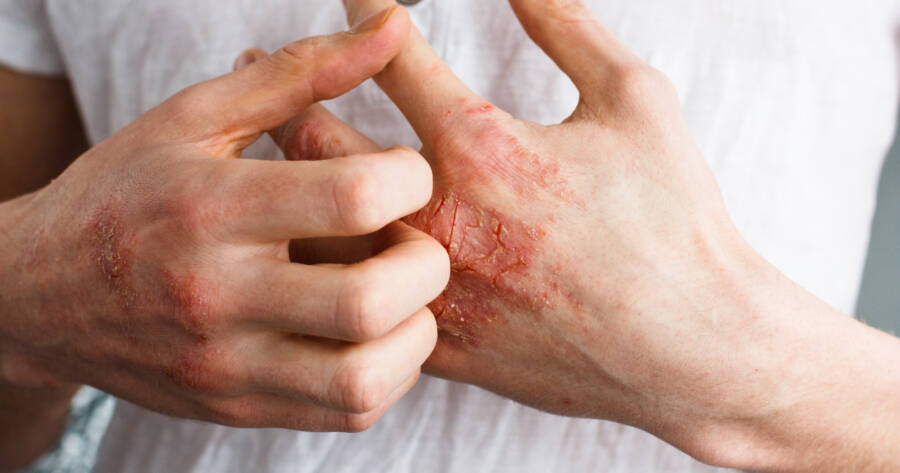Is your skin itchy, red, cracked, rough, or even blistered? You might be dealing with the first signs of eczema. Fortunately, there are plenty of treatment options. Start a search online today to see what eczema looks like and how it can be managed.
Eczema is more than just a skin condition; it can impact your overall well-being and daily comfort. It’s essential to recognize the signs early and take proactive measures. Dive in and equip yourself with knowledge to face eczema head-on.
What is Eczema?
While eczema is pretty common – about 31.6 million Americans are affected by it – it can be both uncomfortable and frustrating to live with.1 Eczema is a term used to describe inflamed and itchy skin. It sometimes is used interchangeably with atopic dermatitis because of the prevalence of the latter.2
Symptoms of Eczema
Symptoms of eczema can vary from person to person. Your age can affect how they appear, and so can the state of your skin. Symptoms can look a bit different in infants, children, and adults.
Symptoms in infants under 2 years of age typically include:
- Rashes on the scalp;
- Rashes on the cheeks;
- Rashes that bubble up, then leak fluid, and;
- Rashes that cause extreme itching that interferes with sleep.
Symptoms in children ages 2 and up typically include:
- Rashes in the elbow creases;
- Rashes behind the knees;
- Rashes on the neck;
- Rashes on the wrists and ankles;
- Rashes that become bumpy;
- Rashes that change colors, and;
- Thick rashes, which harden and develop knots.
Symptoms in adults (age 18 and older) typically include:
- Rashes in the elbow creases;
- Rashes behind the knees;
- Rashes at the nape of the neck;
- Prominent rashes on the neck and face;
- Very dry skin;
- Permanently itchy rashes;
- Scaly rashes, and;
- Rashes that lead to skin infections.
Keep a close eye on any changes to your skin. If any symptoms or rashes become so uncomfortable that they affect your daily activities or your sleep, it’s time to see a doctor.
How Eczema is Treated
Although there isn’t a cure for eczema, you don’t have to resign yourself to living with its symptoms. There are a large number of treatments available that you can try.
The commonly recommended treatments for eczema include:3
- Taking short, warm showers instead of very hot, long showers;
- Managing stress with relaxation techniques;
- A humidifier;
- Over-the-counter creams or ointments;
- Prescription creams or ointments;
- Antihistamines;
- Oral steroids prescribed by a doctor;
- Ultraviolet light therapy;
- Prescription medication that works on the immune system, and;
- Injectable medications administered by a doctor.
You can research these possible options, discuss them with your doctor, and begin working towards fewer symptoms.




